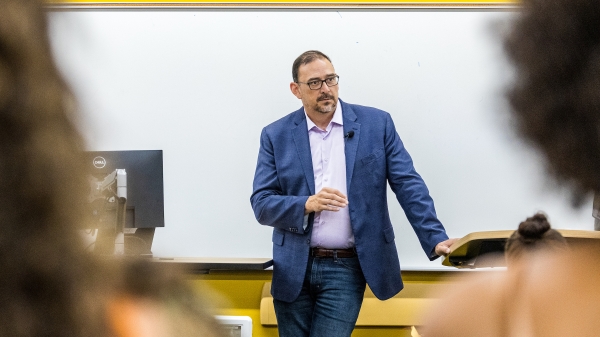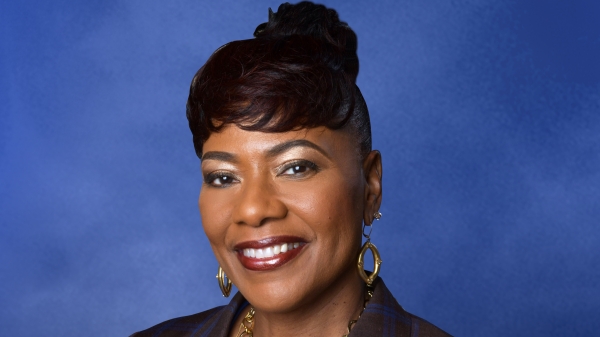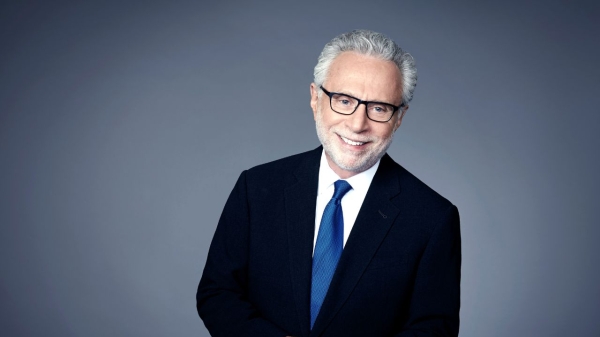More than sports: 2022 Beijing Olympics stir up conversations about human rights

Photo courtesy pexels.com
The 2022 Winter Olympics and Paralympic Games are set to begin in Beijing, China. As people prepare to watch some of the best athletes in the world compete, many critics believe China is attempting to benefit from "sportswashing," a term used for when regimes or countries use sports to bolster their reputation.
While sportswashing has been successful in bringing in money and favorable attention to sports in the past, the rise in social consciousness and activism among athletes and consumers has led to a decline in tolerance for ignoring issues for the sake of sportsmanship.
“When folks say that sports are a distraction or a frivolous activity, they might be missing the frequency with which serious political or human rights issues become elevated thanks to a sporting spotlight,” said Victoria Jackson, clinical assistant professor of history and sports historian in Arizona State University’s School of Historical, Philosophical and Religious Studies.
One example of this spotlight took place last month as Serbian tennis player Novak Djokovic attempted to play in the Australian Open. When he was ordered to stay in a hotel for asylum seekers, it turned global attention to Australia's immigration policies and practices.
“When Djokovic was ordered to stay in a hotel for asylum seekers, it exposed the horrendous conditions in which some people have been forced to live in for years at a time,” Jackson said. “Little did Djokivic know that his charade would give global attention to Australia's mandatory detention policy for anyone who arrives without a visa, including refugees.”
The Olympic Games are facing a diplomatic boycott from the U.S. and a few other nations in response to China’s alleged human rights violations, treatment of the nation’s Muslim minority and its retaliation against civil liberties in Hong Kong. Yet as the hosting nation, China has set harsh restrictions against brands, journalists and athletes from speaking out about these topics.
Lecturer of philosophy and sports philosopher in the School of Historical, Philosophical and Religious Studies Shawn Klein believes these restrictions on an athlete’s freedom of speech should not be tolerated.
“Each athlete has the fundamental moral autonomy to say what they believe and to act on the basis of their conscience,” Klein said. “No government, anywhere in the world, should engage in the suppression or violation of these liberties. Although, of course, this happens all too much.”
Klein also points out, on the other hand, that the underlying philosophy of Olympism is the promotion of peace. The three specific principles of Olympism are excellence, friendship and respect, which are the basis for their promotion of sport, culture and education. Demonstrations of activism during the Games could undermine these goals.
“Politics splits us into groups and tribes,” Klein said. “It antagonizes us, divides us, makes us enemies of each other. This is the opposite of the point of the Games: to bring together the world’s athletes to compete together, peacefully.”
Yet by granting hosting rights to China, the International Olympic Committee (IOC) has put athletes in a difficult position. The issues in China are hard to ignore, and if athletes speak out, they can face political and legal retaliation from the host country.
“As the organizer of the Games, the IOC has an obligation to make sure the Games are safe; that the athletes, and spectators, are not subject to unreasonable risks,” Klein said. “The IOC should not place the Games in autocratic and oppressive countries. But they have, and it is not fair to the athletes.”
And it isn’t just the athletes who have to worry about what they say. Broadcasting company NBC has exclusive rights to broadcast the Games, and the network has been careful in how they handle the responsibility.
“The ads seem to be emphasizing the ‘winter’ of the Winter Olympics in a generic way, and ‘Beijing’ often appears as only a small graphic in the corner,” Jackson said. “Contrast this with what we often see leading into other Olympic Games, and the attention poured on the host city in a way that can feel like a form of boosterism.”
Jackson also points out that in the week leading up to the opening ceremonies, the “NBC Nightly News” program included a segment about Uyghur families who have lost contact with missing family members and explained that the U.S. government has called the Chinese government's treatment of Uyghurs a genocide.
“Critics of NBCUniversal's handling of its broadcast of the Winter Olympics and Paralympic Games argue that the media giant is assisting China in a form of sportswashing,” Jackson said. “That by assisting China in its hosting of the Games, NBCUniveral is helping China normalize its treatment of Uyghurs and launder its reputation.”
Others would point out, Jackson says, that the network was awarded the broadcasting rights to the Games through the year 2032 in 2014, before Beijing was given the hosting rights for the 2022 games.
“NBC seems to be walking a fine line in programming across the network and in the promotional campaign leading into its broadcasting of the 2022 Winter and Paralympic Games in Beijing,” Jackson said.
China has restricted access to forgein media and journalists looking to report on the Games. The nation has also restricted spectators from the Games, citing the COVID-19 pandemic as the deciding factor.
Despite these hurdles, Klein suggests that the human-rights concerns should be part of the general coverage of the games.
“At the same time, the Olympic broadcast itself should be focused on the Games, the athletes and their competition, not politics and activism,” Klein said. “The Olympics are, or should be, about the athletes competing together in the spirit of peace and cooperation that the Olympic Games tries to foster.”
More Law, journalism and politics

Arizona secretary of state encourages students to vote
Arizona Secretary of State Adrian Fontes looked right and left, taking in the more than 100 students who gathered to hear him…

Peace advocate Bernice A. King to speak at ASU in October
Bernice A. King is committed to creating a more peaceful, just and humane world through nonviolent social change.“We cannot…

CNN’s Wolf Blitzer to receive 41st Walter Cronkite Award for Excellence in Journalism
Wolf Blitzer, the longtime CNN journalist and anchor of “The Situation Room With Wolf Blitzer,” will accept the 41st Walter…